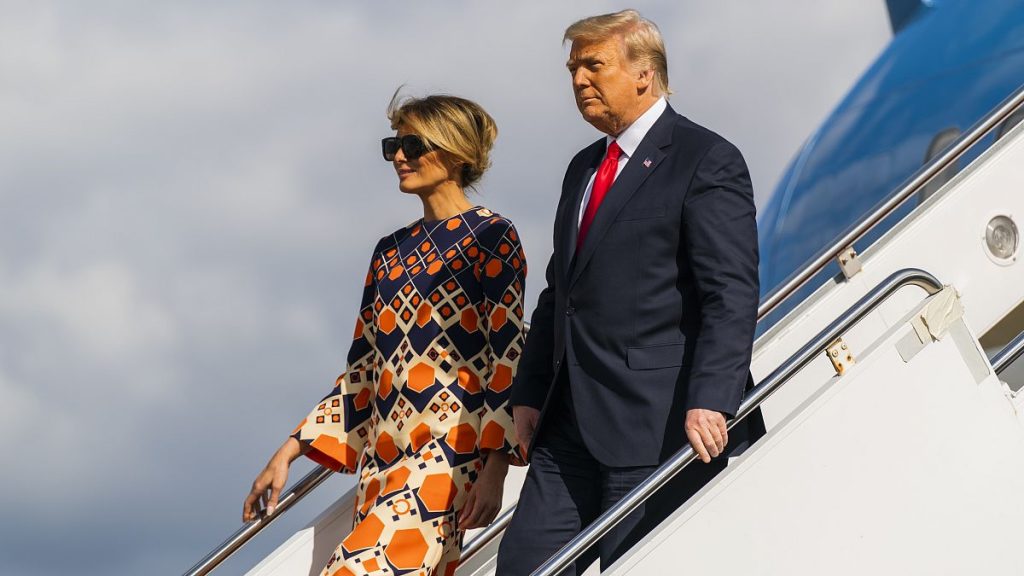A Shifting Landscape: The Intersection of Power, Media, and the Digital Age
Melania Trump’s forthcoming documentary on Amazon Prime Video marks a significant juncture in the evolving relationship between the Trump family and the tech industry, particularly Amazon founder Jeff Bezos. This development, alongside substantial donations from Amazon, Meta, and Apple to Trump’s inauguration fund, suggests a potential thawing of relations between the former president and tech giants who previously held more critical stances. The documentary, directed by the controversial Brett Ratner, promises an intimate portrayal of the former first lady, offering a glimpse into her life beyond the public eye. This venture not only presents a unique opportunity for Melania Trump to shape her public image but also raises questions about the motivations behind Amazon’s embrace of the project, given the platform’s reach and influence.
The selection of Ratner as director adds a layer of complexity to the narrative. His past accusations of sexual misconduct, which he denies, inevitably cast a shadow over the production. This choice raises concerns about Amazon’s willingness to overlook Ratner’s controversial history in favor of potentially lucrative content. The collaboration with Ratner reveals the intricate balancing act between creative freedom, commercial interests, and ethical considerations within the entertainment industry. It remains to be seen how audiences will react to Ratner’s involvement and whether it will impact the reception of the documentary itself.
The financial contributions from Amazon, Meta, and Apple to Trump’s inauguration further underscore the evolving dynamics between the tech sector and the political sphere. These substantial donations, coupled with Amazon’s streaming of the inauguration event, signal a shift from the often-adversarial relationship between Trump and these companies during his first term. Bezos’ previous criticisms of Trump’s rhetoric and Trump’s attacks on The Washington Post, owned by Bezos, add another layer of intrigue to the current rapprochement. This apparent change of heart raises questions about whether these donations represent genuine support for the incoming administration or a strategic move to curry favor and influence policy decisions.
The apparent shift in Bezos’ stance towards Trump is particularly noteworthy. His previous opposition to Trump’s policies and rhetoric contrasts sharply with his recent expressions of optimism regarding the new administration. The decision by The Washington Post, under Bezos’ ownership, not to endorse a presidential candidate in the previous election cycle also sparked controversy and internal dissent. The resignation of a cartoonist over a rejected sketch critical of Bezos and other media executives highlights the tensions between journalistic integrity, editorial independence, and the influence of ownership within media organizations.
Amazon’s entanglement with the Trump administration extends beyond the documentary and inauguration donations. The company’s legal battle over a $10 billion Pentagon contract, in which Amazon alleged that Trump’s bias harmed its chances, underscores the complex interplay of business interests and political influence. This case exemplifies the challenges faced by companies navigating the intersection of government contracts, competitive bidding processes, and potential political interference.
The convergence of these factors – the Melania Trump documentary, the substantial donations, the evolving relationship between Bezos and Trump, and the controversies surrounding Ratner and The Washington Post – paints a complex picture of the current media landscape. It highlights the shifting alliances between tech giants, political figures, and the media, raising important questions about the influence of money, power, and access in shaping public discourse. The documentary’s release will undoubtedly be met with intense scrutiny, not only for its content but also for its implications regarding the evolving relationship between the tech industry and the Trump family.
The documentary itself represents a powerful tool for shaping public perception and influencing narratives. Melania Trump’s relatively limited public appearances have created an air of mystery around her, and this documentary offers a carefully curated glimpse into her world. The timing of the release, coinciding with the start of Trump’s second term, suggests a strategic effort to solidify her public image and potentially lay the groundwork for future endeavors. The choice of Amazon Prime Video as the platform further amplifies the documentary’s reach and potential impact, leveraging the streaming service’s vast global audience.
The confluence of these events – the documentary, the donations, and the shifting alliances – underscores the increasingly intertwined nature of politics, media, and technology. This interconnectedness raises crucial questions about the potential for conflicts of interest, the influence of corporate power on political decision-making, and the role of media in shaping public opinion. As the lines between these spheres continue to blur, it becomes increasingly important to critically examine the motivations and implications of these complex relationships.














